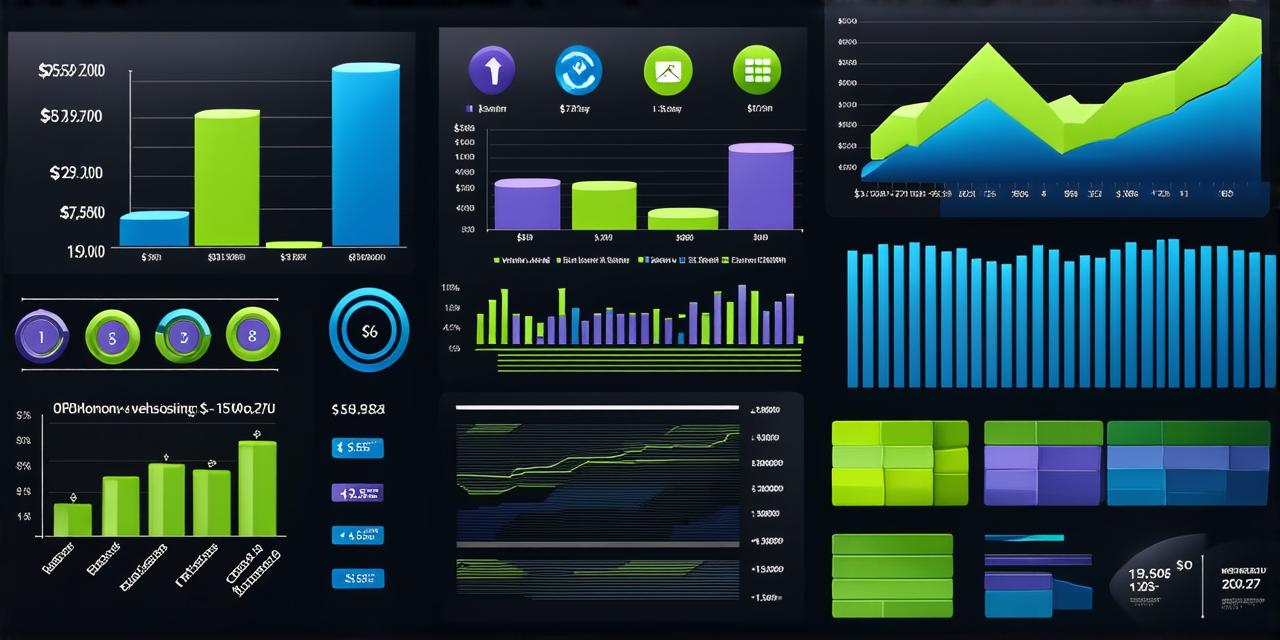Introduction
As a web developer, you are well aware that your website’s performance and availability depend on reliable hosting services. The right web hosting provider can help you optimize your website’s speed, security, and scalability, while keeping costs under control. However, with so many options available in the market, it can be challenging to choose the best web hosting service for your needs and budget.
Types of Web Hosting Services

There are several types of web hosting services that you can choose from, including:
- Shared Hosting
Shared hosting is the most affordable and popular type of web hosting service, where multiple websites share the same server resources. This hosting plan is suitable for small businesses and personal websites with limited traffic and storage requirements.
Pros:
- Affordable pricing
- User-friendly interface
- Suitable for small businesses and personal websites
- Easy to manage and set up
Cons:
- Limited server resources
- Limited customization options
- Limited scalability options
- Shared hosting can be vulnerable to security threats
2. VPS Hosting
VPS hosting stands for Virtual Private Server hosting, where you get a virtual machine on a physical server that is dedicated to your website’s needs. This hosting plan is suitable for businesses with moderate traffic and storage requirements, as well as those who need more control over their website’s settings and customizations.
Pros:
- Dedicated server resources
- High level of customization options
- More scalability options than shared hosting
- Suitable for businesses with moderate traffic and storage requirements
Cons:
- Higher cost compared to shared hosting
- Requires technical expertise to set up and manage
- Limited user-friendly interface
3. Dedicated Hosting
Dedicated hosting is where you get a physical server dedicated solely to your website’s needs, providing you with maximum control over your website’s settings and customizations. This hosting plan is suitable for businesses with high traffic and storage requirements, as well as those who require enterprise-level security features.
Pros:
- Maximum control over website settings and customizations
- High level of scalability options
- Enterprise-level security features
- Suitable for businesses with high traffic and storage requirements
Cons:
- Highest cost compared to shared hosting and VPS hosting
- Requires technical expertise to set up and manage
- Limited user-friendly interface
4. Cloud Hosting
Cloud hosting is a web hosting service that uses cloud computing technology to provide your website with scalable, reliable, and secure resources. This hosting plan is suitable for businesses of all sizes and requires minimal maintenance, as the cloud infrastructure handles all the technical aspects of website hosting.
Pros:
- Highly scalable and reliable
- Minimal maintenance required
- Provides global coverage for your website’s users
- Suitable for businesses of all sizes
Cons:
- Higher cost compared to shared hosting
- Requires technical expertise to set up and manage
- Limited level of customization options
Factors Affecting Web Hosting Service Cost
Several factors affect the cost of web hosting services, including:
- Server Resources
The amount of server resources required for your website, such as CPU power, RAM, disk space, and bandwidth, affects the cost of web hosting services. The more resources you need, the higher the cost will be.
2. Traffic and Bandwidth
The amount of traffic and bandwidth your website receives also affects the cost of web hosting services. Websites with high traffic and bandwidth requirements may require more expensive hosting plans to ensure fast loading times and uninterrupted access for users.
3. Customization Options
The level of customization options available with each hosting plan affects the cost. Hosting plans that offer a higher level of customization, such as dedicated hosting or cloud hosting, typically cost more than shared hosting or VPS hosting.
4. Security Features
Security features like DDoS protection, SSL certificates, and firewalls also affect the cost of web hosting services. Websites with high-security requirements may require more expensive hosting plans to ensure maximum security.
5. Customer Support
The level of customer support available with each hosting plan also affects the cost. Hosting plans that offer 24/7 customer support and technical expertise, such as dedicated hosting or cloud hosting, typically cost more than shared hosting or VPS hosting.
Comparison of Web Hosting Services Costs
Now that we have discussed the different types of web hosting services and their features let’s compare their costs:
Shared Hosting vs. VPS Hosting vs. Dedicated Hosting vs. Cloud Hosting
| Factors | Shared Hosting | VPS Hosting | Dedicated Hosting | Cloud Hosting |
| — | — | — | — | — |
| Server Resources | Limited resources | Dedicated resources | Maximum resources | Scalable resources |
| Traffic and Bandwidth | Low to moderate | Moderate to high | High | High |
| Customization Options | Limited customization options | Higher level of customization options | Maximum control over website settings and customizations | Limited level of customization options |
| Security Features | Basic security features | Advanced security features | Enterprise-level security features | Basic security features |
| Customer Support | Basic customer support | Technical expertise required | 24/7 technical support available | Limited customer support || Cost | $2.50 to $10 per month | $20 to $150 per month | $50 to $500 per month | $5 to $20 per month |
FAQs
1. What is the average cost of web hosting services?
The average cost of web hosting services varies depending on the type of hosting plan you choose, your website’s traffic and bandwidth requirements, and other factors. The cost can range from $2.50 to $10 per month for shared hosting, $20 to $150 per month for VPS hosting, $50 to $500 per month for dedicated hosting, and $5 to $20 per month for cloud hosting.
2. What is the difference between shared hosting and VPS hosting?
Shared hosting and VPS hosting are both types of web hosting services where multiple websites share the same server resources. However, the main difference is that VPS hosting provides dedicated server resources for each website, while shared hosting provides limited resources for all websites on the server.
3. Is cloud hosting more expensive than traditional hosting?
Cloud hosting can be more expensive than traditional hosting due to its highly scalable and reliable nature. However, the cost of cloud hosting is offset by its ability to handle high traffic and bandwidth requirements with ease.
4. What security features are available in web hosting services?
Security features like DDoS protection, SSL certificates, and firewalls are available in web hosting services. The level of security features depends on the type of hosting plan you choose.
5. What is the difference between dedicated hosting and cloud hosting?
Dedicated hosting provides a physical server dedicated solely to your website’s needs, while cloud hosting uses cloud computing technology to provide scalable, reliable, and secure resources for your website.
Summary
Choosing the right web hosting service for your website is crucial to ensure fast loading times, uninterrupted access for users, and maximum security. Understanding the different types of web hosting services, their features, and costs can help you make an informed decision that meets your website’s requirements and budget.



